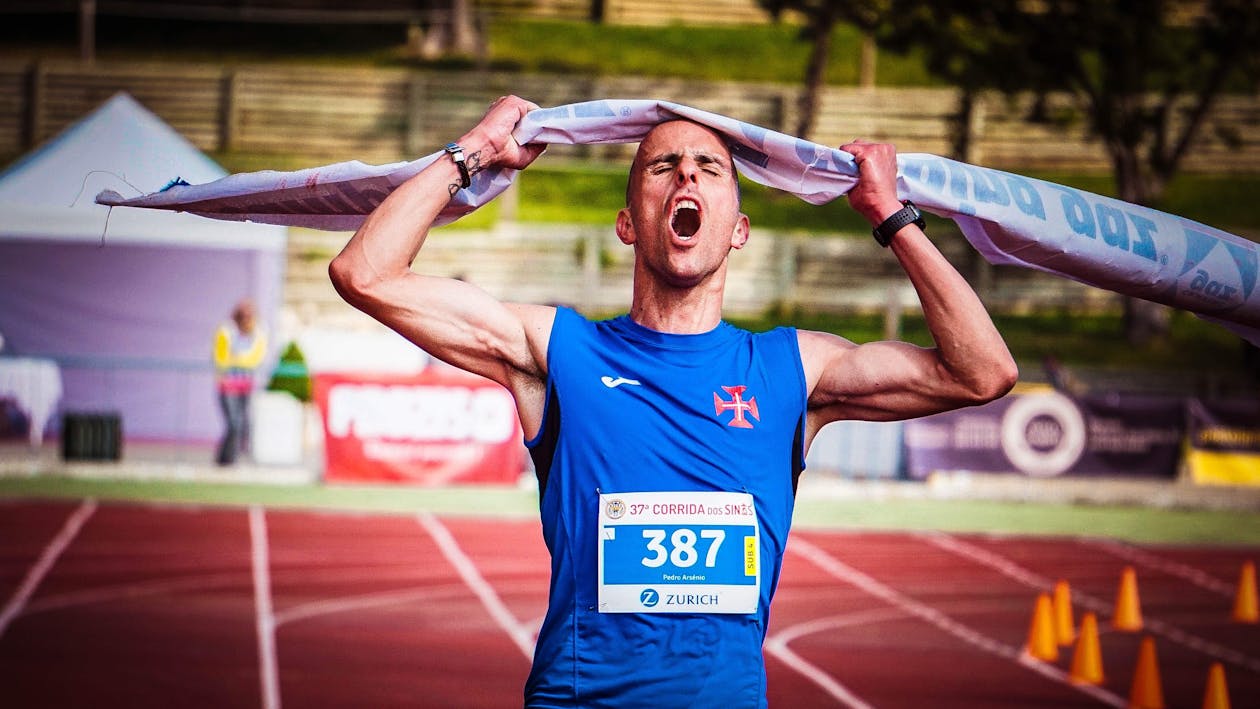Surpassing your physical limits and pushing your mind and body to the brink, the thrilling journey of completing a full marathon is more than just a physical challenge. It takes careful planning, unrelenting commitment, and a strategic attitude to run 26.2 miles. We’ll discuss the complexities of getting ready for the ultimate athletic challenge in this in-depth guide, which provides insights and advice to ensure survival and a successful voyage.
This guide is your compass for guiding you through the inevitable lows and thrilling highs of marathon training, from building a strong foundation to developing the mental toughness necessary for marathon success. Get ready to discover new strength and resiliency on the path to marathon greatness as you tie your shoes and set off on this incredible journey.
Laying A Firm Basis
Establish a strong running foundation before starting the marathon training process. Condition your muscles, joints, and cardiovascular system for several months with regular, moderate running. Start with shorter distances like 5K and 10K to increase your stamina and endurance, and work your way up. This preparatory stage is essential for lowering your chance of injury, preparing your body for the demands of marathon training, and facilitating a more seamless transition into longer, more strenuous workouts.
Structured Training

A well-thought-out marathon training schedule is your road map to triumph. These programs, which last 16 to 20 weeks, gradually increase endurance while combining various exercises to improve different areas of your running. Interval, tempo, and long runs are carefully combined to increase speed, endurance, and pacing. A planned approach reduces the likelihood of burnout or overtraining and gradually maximizes physical fitness by gradually acclimating the body to higher workloads.
The Value Of Consistency
The cornerstone of preparing for a marathon is training consistency. Maintaining a strict training regimen guarantees a continuous increase in your fitness level. Consistent, focused training improves running form, increases cardiovascular efficiency, and develops muscle memory. One must engage in constant training to build the mental and physical resilience required for the marathon distance. Achieving your best on race day requires following your training schedule and not taking needless breaks.
Including Cross-Training
Incorporate cross-training exercises to add variety to your training plan. Exercises that reduce the adverse effects of running, such as swimming, cycling, or strength training, also improve general fitness. In addition to improving your running performance, cross-training addresses muscle imbalances and lowers your risk of overuse injuries while fostering well-rounded athleticism. A comprehensive approach to fitness improves your body’s capacity to endure the demanding training associated with a marathon.
Dietary Considerations
Getting enough fuel into your body is crucial when preparing for a marathon. Adopt a diet rich in healthy fats, proteins, and carbs to promote muscle repair and energy production. Water is also very important, particularly when running long distances. Knowing what to eat and when can help you recover, increase your stamina, and prevent your body from losing vital nutrients. This will give you sustained energy during the intense training phase.
Accepting Rest & Recuperation
Don’t undervalue the importance of relaxation and recovery in your never-ending quest for marathon readiness. Adequate rest days and sleep enable your body to rebuild and adjust to the escalating demands of exercise. Fatigue, a drop in performance, and an increased risk of injury can result from overtraining. Strategically planned break intervals are essential to avoid burnout and maintain peak performance during important training sessions and, eventually, on race day.
Essential Equipment

Purchasing the appropriate equipment is a silent but essential part of training for a marathon. Start with running shoes that are supportive enough and fit your type of foot. During lengthy runs, wearing breathable clothes helps control body temperature and minimizes friction. To stay hydrated throughout training sessions, consider adding gear like a hydration belt or handheld water bottle and other necessities like a comfortable sports watch for monitoring your pace and distance. When logging miles to prepare for the marathon, having the correct gear improves your comfort and helps you run at your best.
Progressive Mileage Increase
A sensible guideline for training for a marathon is to gradually increase your mileage. Abrupt increases in distance or intensity can potentially cause overuse injuries and hinder your progress in training. As you adhere to the suggested mileage increments in your training plan, your body will gradually adjust and get stronger. This systematic approach reduces the possibility of injuries and promotes a sustainable training schedule
Paying Attention To Your Body
Every marathon runner needs to become proficient at interpreting their body’s messages. Unusual exhaustion, persistent pain, or discomfort may be signs of underlying problems that must be addressed. Take the initiative and deal with issues as soon as you see them instead of trying to endure discomfort. You can stay in peak physical condition during training by doing self-checks regularly, stretching yourself, and seeing a physiotherapist occasionally.
Getting Ready For The Race
Turn your attention to getting ready for the race day in the last weeks before the marathon. Learn the marathon route by heart, making note of important landmarks and possible obstacles. Do a few long training runs under race circumstances to fine-tune your pacing and nutrition strategy. When choosing your race day outfit, consider the weather and any probable changes. Pack personal belongings, extra layers, energy liquids, and other necessities in your race day pack. A well-planned strategy guarantees that you’re mentally and physically ready to take on the thrills and challenges of a long day.
Developing An Upbeat Attitude
Resilient thinking is just as important to marathon training as the physical components. You can cultivate positivity by appreciating little triumphs, recognizing advancements, and envisioning success. Mental toughness is essential for training sessions and, more importantly, race day.
Maintaining an optimistic outlook helps you run better and transforms the marathon experience into a meaningful and life-changing experience. A strong mindset constantly reminds you that you are getting closer to your goal of crossing the finish line.
The Final Word

Each step represents perseverance and commitment to finishing a complete marathon. Every component, from laying a solid foundation to preparing every detail on race day, adds to a life-changing experience. Remember that your marathon experience is defined by more than just finishing 26.2 miles; it’s also about celebrating your self-discovery and steadfast devotion. Run confidently and celebrate your victory when you cross the finish line; it will be a lasting reminder of your unwavering spirit.




GIPHY App Key not set. Please check settings